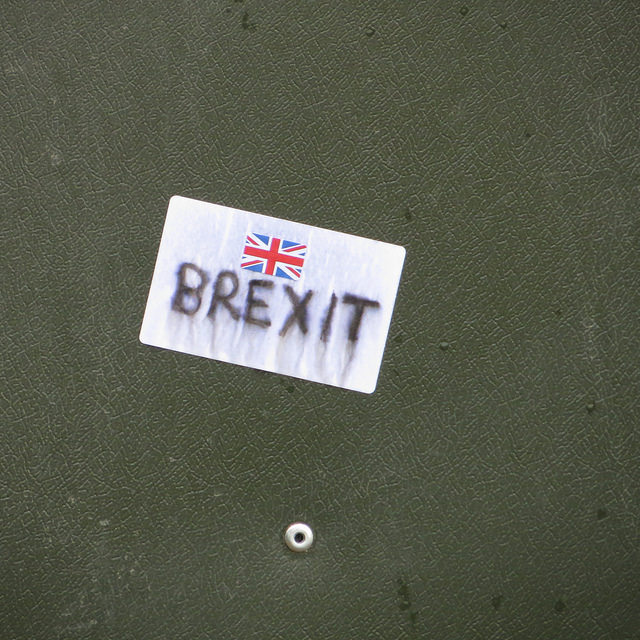Like this article? rabble is reader-supported journalism. Chip in to keep stories like these coming.
On May 9, 1950, Foreign Minister Robert Schuman made a radical proposal to the French cabinet, which adopted it after heated debate. Simultaneously, the proposal was communicated to West German Chancellor Konrad Adenauer who welcomed it enthusiastically the same day. The U.K. Labour government would reject it.
Schuman proposed the creation of a supranational body to manage coal and steel production in the Ruhr valley: the European Coal and Steel Community (ECSC).
The idea was to pool the war-making resources of France and West Germany, and have the two countries jointly develop them for peaceful purposes. Schuman envisaged inviting other countries to join; Luxembourg, Belgium, Holland and Italy soon did.
The Schuman Declaration is an eloquent document, with a clarity of purpose. It offers a vision of world peace and a plan for achieving it step-by-step, beginning where the two 20th-century World Wars were fought. There is nothing quite like it in European postwar diplomatic history.
Schuman offered a model for institutional co-operation among sovereign states. Instead of working separately in ministries of war on how to invade each other, national officials would pool their efforts in a supranational institution to plan for joint prosperity.
Supranationality proved persuasive. However, European institution building was vulnerable to meddling by insiders, who preferred national advantages over supranational ideals; and outsiders anxious to gain advantage from new bureaucracies outside national protection.
The declaration was drafted by a young international lawyer, Paul Reuter, like Schuman a native of the Lorraine region (which had bounced back between France and Germany) a law graduate of the University of Nancy, a French combatant, and a prisoner of war who escaped his captors.
Schuman and Reuter foresaw that peace would follow economic integration, and that it would take efforts equal to those deployed in making war to create a peaceful, prosperous Europe.
As part of its vision of Europe as a bulwark against communist expansion, the U.S. promoted its own form of European economic integration, both before and after the Schuman Declaration, one based on market economics and defence spending.
The European project built on the ECSC success. As European institutions evolved over successive stages, the reasoning that underlay the Schuman Declaration was maintained.
Supranational authority would govern economic space; political integration would be resisted.
Despite U.S. urging, serious military co-operation failed.
The idea of a federal Europe, modelled on the United States or Canada, has had its proponents, including Winston Churchill, but it has not been the model followed in Europe.
From its beginnings as the ECSC to the 1957 Treaty of Rome creating a European Common Market, and on to the 1992 Maastricht Treaty assigning citizenship in a European Union, a non-elected, high authority — today the European Commission — carried out the will of the member states, as expressed by the Council of Ministers.
This appointed authority is in sharp contrast to the central government of a federal state.
A European Parliament approves Commission members, and European regulations and laws, but member states direct the Commission and retain ultimate sovereignty.
Schuman and Reuter believed national governments could use international law to shape the future without ceasing to function as independent states. The international cartels of coal and steel could be legislated out of existence, and replaced by supranational planning and national co-operation.
The idea of a supranational Europe entailed labour market protection and safeguards against predatory pricing, making it attractive to social democratic Europe.
By the time the British overcame French vetoes and joined the European Economic Community (as it was then) in 1973, the Labour party was assuring supporters that Europe would help Labour achieve its social goals.
In 1975 U.K. Labour Prime Minister Harold Wilson called a referendum to confirm British membership, and Europe received two-thirds support from British voters.
If supranational Europe was a comfortable place for citizens of the various constitutional monarchies that were part of its membership, it became even more attractive for the operations of major multinational corporations, mainly American, that brought their tools to Brussels: lobbying, policy packages, and public opinion formation.
The “American Challenge” identified by Jean-Jacques Servan-Schreiber confronted the institutions of what we know today as the EU, and as neoliberal economics, smuggled into the Maastricht treaty, it was successful.
Instead of mainly serving the citizens of the EU, its institutions are now so corporate friendly that the entire European project is losing support.
The Greek debt crisis revealed that the European Central Bank operates as an agent of multinational banking, not as a lender of last resort to member states, a preposterous position that undermines the European ideal of supranationality.
The proposal to take Britain out of the EU — Brexit — has exploded with unexpected force onto the world stage. A significant percentage of the British population say that if the future of the U.K. inside Europe resembles what they see today — they want none of it. Despite its dodgy leadership with its right-wing tendencies, Brexit voters are numerous, and the outcome of the referendum is in doubt.
Britain stayed out of the Euro, is not a member of the Governing Council of the ECB, never joined the open borders accord known as the Schengen Agreement, and British leaders are notably weak Europeans. None of this has worked to secure the “Remain” option vote.
Each May 9, Europe celebrates its creation. Europe Day is known in some countries as Schuman Day after the French foreign minister who envisaged supranational institutions as mechanisms of peace-making to replace national war-making.
May 9 is not a public holiday in Britain. If Brexit fails, U.K. governments might consider making it one, and asking people to reflect on the meaning and potential inherent in supranational authority.
Duncan Cameron is former president of rabble.ca and writes a weekly column on politics and current affairs.
Photo: D Smith/flickr
Like this article? rabble is reader-supported journalism. Chip in to keep stories like these coming.



